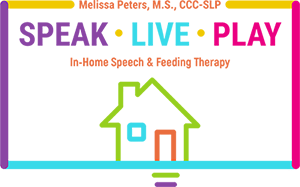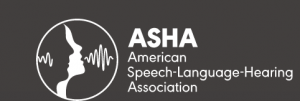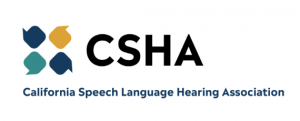Speech and Voice Disorders: How Speech Therapy Can Help?
Losing your ability to speak fluently is a significant inconvenience. Simple tasks such as talking to your family or ordering coffee might become a hassle when you suffer from speech and voice disorders. Luckily, Speech language pathologists at Speak Live Play have broad experience in this field, helping you regain your ability to communicate effectively. Most of the speech and voice disorders are reversible. Our highly trained staff will help you get your independence without having to take medications or undergo surgeries.
What are Speech and Voice Disorders?
Voice disorders are often associated with a problem with the volume, Pitch, tone, and other quantities of your voice. The problems arise when the vocal cords do not vibrate normally. Your voice is the sound that the air makes when forced out of the lungs and passes over the vocal cords. Vocal cords are tissues in the larynx (voice box). The vocal cords vibrate to make a speech.
Speech and voice disorders arise when there is something that interferes with the vocal movement. The leading causes of voice disorders include growth, inflammation, nerve problems, vocal abuse, and hormones. The primary voice cord disorders include:
Laryngitis
This disorder develops when the vocal cord swells. When this happens, the voice becomes hoarse, and sometimes you might not be able to speak at all. Acute laryngitis occurs suddenly and is usually caused by a virus in the upper respiratory tract. Chronic laryngitis occurs when the swelling does not subside even after a long period. The condition is often caused by chronic cough, using asthma inhalers, and GERD.
Vocal cord paresis or paralysis
Viral infection tends to make the vocal cords paralyzed. The condition often arises when there is an injury to your nerves during surgery, cancer, or stroke. Speech therapy is the best remedy to ease the paralysis, improving your speech.
Spasmodic dysphonia
Spasmodic dysphonia is a nerve problem that usually causes spasms in the vocal spasm. The condition makes the sound light, hoarse, jerky, groaning, or quivery. Severe conditions may result in the person not being able to talk. So-Cal Speech and Swallow therapist are specialist in this field and help the patient to make a fluent speech with friends and family
How Speech Therapy Can Help
Speech and voice disorders affect many children and adults globally. Speech therapy is a crucial step to help the patients to have fluent speech. The therapy involves several exercises that help reduce inflammation and other problems affecting your voice. The speech and language therapists may even prevent the need for surgeries and other invasive procedures. Below are some of the everyday speech and voice signs and how speech therapy can help resolve them.
Weak or Quivering Voice
The most common speech and voice signs are a weak or a quivering voice. A quivering or weak voice results when the throat is constricted. These conditions are common with spasmodic voice disorders. In North America only, more than 50,000 people suffer from spasmodic dysphonia. The SLPs at Speak live play work with the patient and helps them to control their breath during speech. The professionals will also guide the patient on how to place the tongue, allowing them to speak more fluently
Hoarse Voice Disorders
If you have a hoarse voice or are losing your voice, your vocal cords will likely be swollen. A sore throat or bad cough is the most common cause of a hoarse voice. However, the hoarseness can also occur without an illness. In this case, the condition may develop because of vocal cord paralysis or voice abuse. Lifestyle changes such as staying away from cigarettes, spicy foods, and alcohol can improve voice quality.
Resting your vocals and avoiding talking too loud can also help. So-Cal Speech and Swallow therapist can also help a patient suffering from chronic voice disorders. The specialist will instruct healthy vocal behavior and help the patient identify the harmful behaviors that contribute to the chronic condition.
Strained or Choppy Voice
Choppy or a strained voice is also a common spasmodic dysphonia sign. The condition occurs when there is a problem with the larynx muscle. These symptoms are hard to identify as they often come on gradually. A speech and voice therapist will guide you on various exercises that strengthen the weak muscles, allowing you to speak normally.
Breathy Voice
Improper vocal cord functioning can result in a breathy voice. The condition arises when there is a polyp, benign tumor, or thyroid /larynx cancer. A breathy voice may also indicate spasmodic dysphonia. In most cases, if the condition is not because of a tumor that requires surgery, speech therapy is a great solution. A speech therapist will train the patient on how they can compensate for their paralyzed vocal cords. The training involves helping the patient to work on their breathing, Pitch, and proper head positioning when speaking.
Pain While Speaking/Singing
Muscle tension dysphonia often causes pain, discomfort when speaking or singing. The condition arises mainly because of misuse of the muscles surrounding your larynx. Nodules or polyps on the vocal cords may also cause muscle tension. Speech language pathologists at Speak live play customize the speech therapy depending on the type and severity of your condition.
To treat the condition, the therapist starts by identifying the cause of the problem. After identifying the triggers, the therapist comes up with a plan to overcome those triggers. Additionally, medications or surgery can also help in treating the condition. However, medications do not guarantee that the condition will not come back. Voice therapy assists in breaking the speech habits that can be triggering the condition.
Vocal Fatigue
If you are a teacher, tutor, preacher, or singer, you will likely suffer from vocal fatigue. Unfortunately, vocal cord overuse can result in long-term damage. If you use your voice a lot, it is essential to get a voice therapy program. Speak live play will help you learn how to speak so that you will not hurt your vocal cords. The professional will also train you on exercises that can reverse the already sustained damages.
Change in Voice after Trauma/Surgery
Vocal cord trauma may lead to a variety of voice disorders. While surgery to remove nodules or thyroid cancer helps clear your throat, it may still leave you with a voice disorder. Speak live play will help reduce the amount of stress on the voice and promote a speedy healing process.
Goals for Speech and Voice Disorders Treatment
Speech language pathologists play an essential role in assisting individuals with speech and voice disorders. Unlike general medicine practitioners, SLPs have more experience in this field. As such, they can diagnose speech and voice disorders quickly. They also have special training that helps you get a smooth, audible voice, allowing you to communicate effectively. The main goals for speech and voice treatment include:
- Assessing the factor that contributes to your voice problem and helping you to deal with them
- Giving you all the relevant information about your voice
- Suggesting the things that will help improve the voice quality or minimize the impact that is causing on your voice
- Teaching you the therapy exercises and techniques that help improve your voice. The speech therapist will ask you to practice the techniques regularly
- Educate those close to you about your condition and what they can do to ease you
- Educating you on how to keep your voice healthy in the long term
Why Choose Speak Live Play
Dealing with a patient suffering from speech and Voice disorders requires specialized attention. A general medical practitioner has less experience in this field and often refers the patients to speech therapists. Speak live play is a well-established treatment center that offers result-oriented care for patients suffering from speech and voice disorders.
With highly experienced SLPs, Speak Live Play creates a customized treatment plan that meets your individual needs. We understand that each old or young deserves a long, healthy, and happy life. Do not let the speech or voice problems keep you from what you love doing. Get in touch with us today, and let us accompany you in this journey of refining your voice.
Sources
- https://www.mayoclinic.org/diseases-conditions/voice-disorders/symptoms-causes/syc-20353022
- https://www.rcslt.org/speech-and-language-therapy/clinical-information/voice/#section-3
- https://www.speechpathologygraduateprograms.org/voice-therapy/
- https://www.talkshop.com.au/how-we-help/how-speech-pathology-treats-hoarsevoice-lostvoice-dysphonia-voicedisorder-voiceproblem-australia-sydney-speech-therapy/
- https://greatspeech.com/7-signs-of-voice-disorders-and-how-speech-therapy-can-help/



